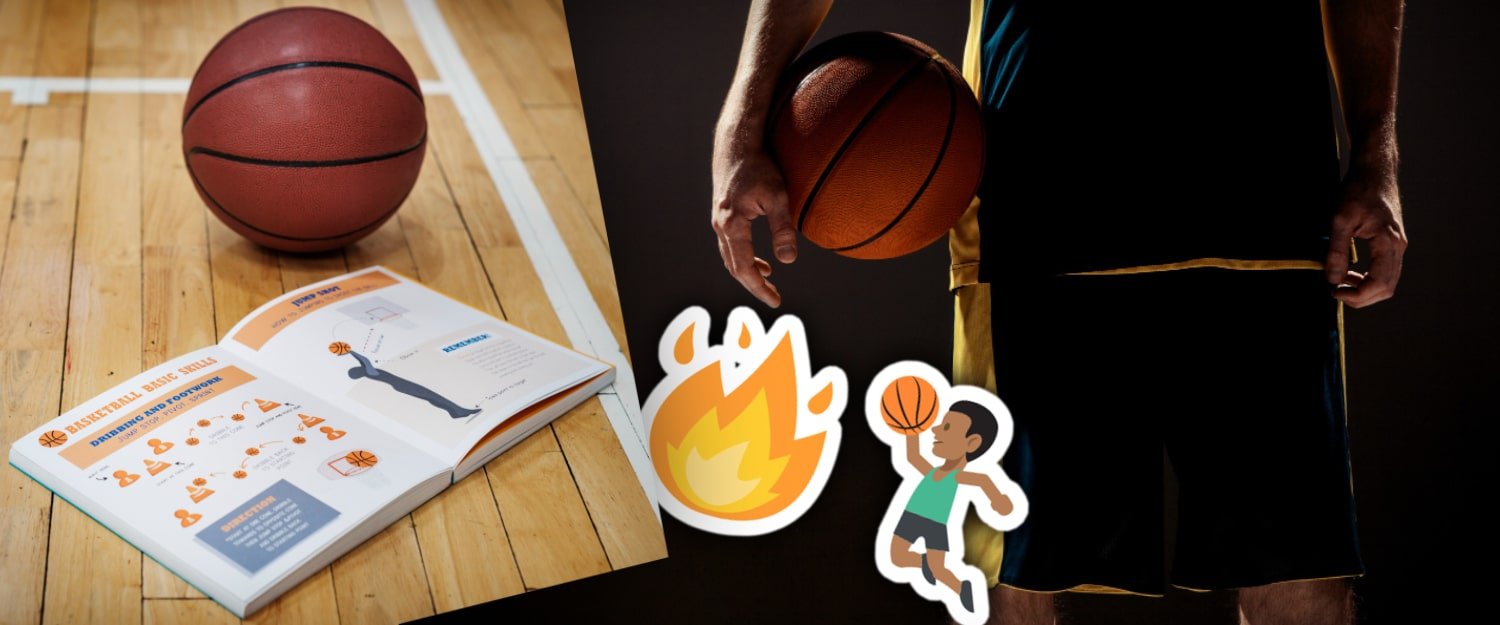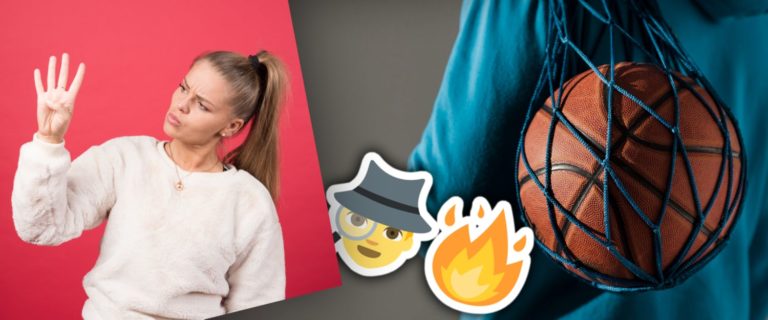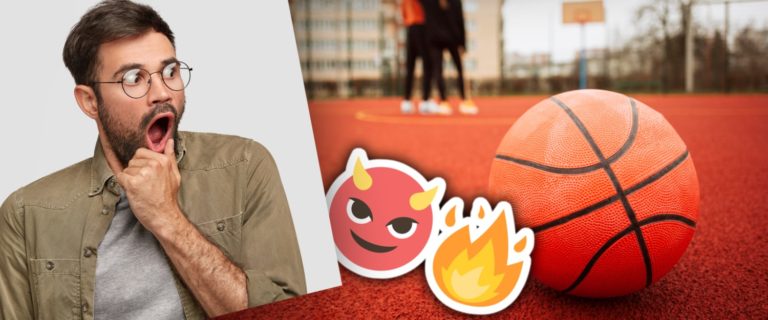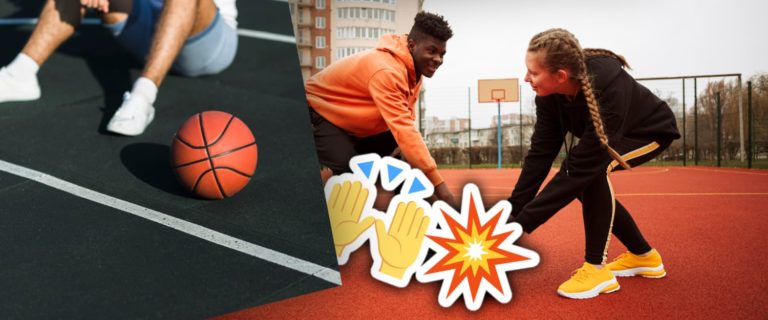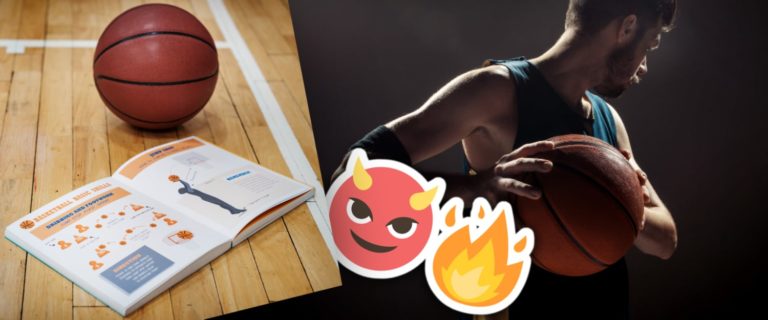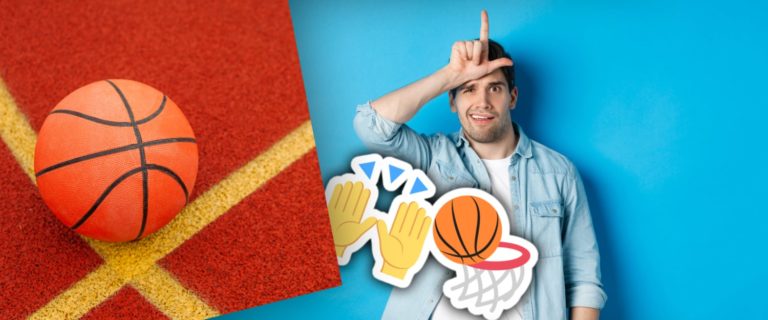How To Play Small Forward In Basketball: Tips & Best Players
One of the most crucial positions on the court in basketball is the small forward. They are adaptable and capable of doing nearly anything. Small forwards typically perform best when they post up close to the basket or take the ball out to the wing for a three-point shot.
The role needs originality, skill, talent, and athleticism. Hence, it ranks as one of the best positions in all of sports! You can learn everything you need to know about playing small forward in basketball from this blog.
What is The Role of a Small Forward in Basketball?
Unlike other basketball players who may play one position and have fewer tasks, small forwards are amazing since they have a lot of responsibilities.
It’s crucial to remember that undersized forwards frequently possess versatility. As a result, to compete with players from all around the nation and the world at this position, you must possess exceptional levels of athleticism.
Small forwards are usually the most versatile and most complicated position in basketball. Often times they are the “do-it-all” of their teams because they are big enough to match up with some NBA bigs and they are still quick enough to be able to play against the NBA’s guards
Some example of Current NBA Small Forwards today are Lebron James, Kevin Durant, Giannis Antetokounmpo, Luka Doncic, among many other. They all have a specialty whether it’s scoring, facilitating, rebounding, blocking shots, etc. However, one sure thing is they almost always fill up the stat sheets. That’s why some people call small forwards as the team’s “swiss aremy knife.”
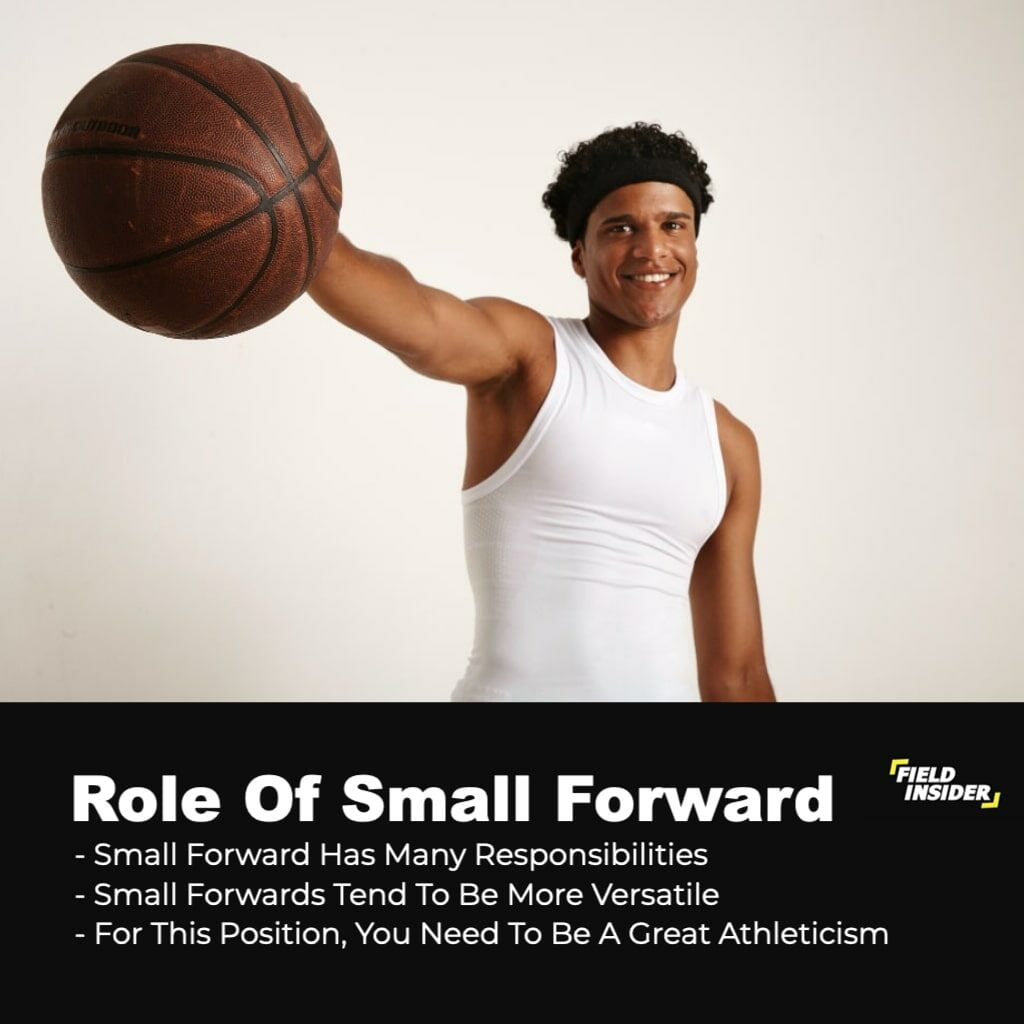
How are Small Forwards Ranked?
Small forwards are ranked based on their skillset similar to how quarterbacks are ranked in football or pitchers/position players for baseball. This is because small forward requires so much skill and athleticism which makes it difficult for people to succeed when they focus only on one thing during play.
Similarly, pitchers can’t do everything a batter does. And quarterbacks can’t do all the things that wide receivers or running backs do.
What Are The Skills of a Small Forward?
A successful small forward is willing to make sacrifices for their teammates by playing defense and passing the ball around during offensive plays instead of trying to score themselves. If you want to succeed as a small forward then you need:
Strength
You will be required to play against teams with taller players who might not have your speed; this means that you must be strong enough to keep up with them.
Versatility
You will need the ability to shoot from outside, post up in the paint, and defend other players on your squad or against opposition teams. This implies that you cannot limit yourself to just one part of basketball; rather, you must put forth great effort to develop into a player who is well-rounded and excels at a variety of facets of the game.
Athleticism
Small forward is one of the more physically demanding positions in basketball. Because you will be playing against other teams who are tall, fast, and strong.
If you want to succeed at this position then your athleticism must match up with others on the court. Otherwise, you’ll be forced off the ball or out of bounds by much stronger players.
Leadership Skills
Basketball is a team sport, thus players must cooperate. If everyone pursues their own objectives without considering what they can do to help one another (by passing the ball and defending teammates), then there won’t be any winners! We advise searching for little forwards with leadership qualities in order for them to assist their teammates in navigating challenging situations.
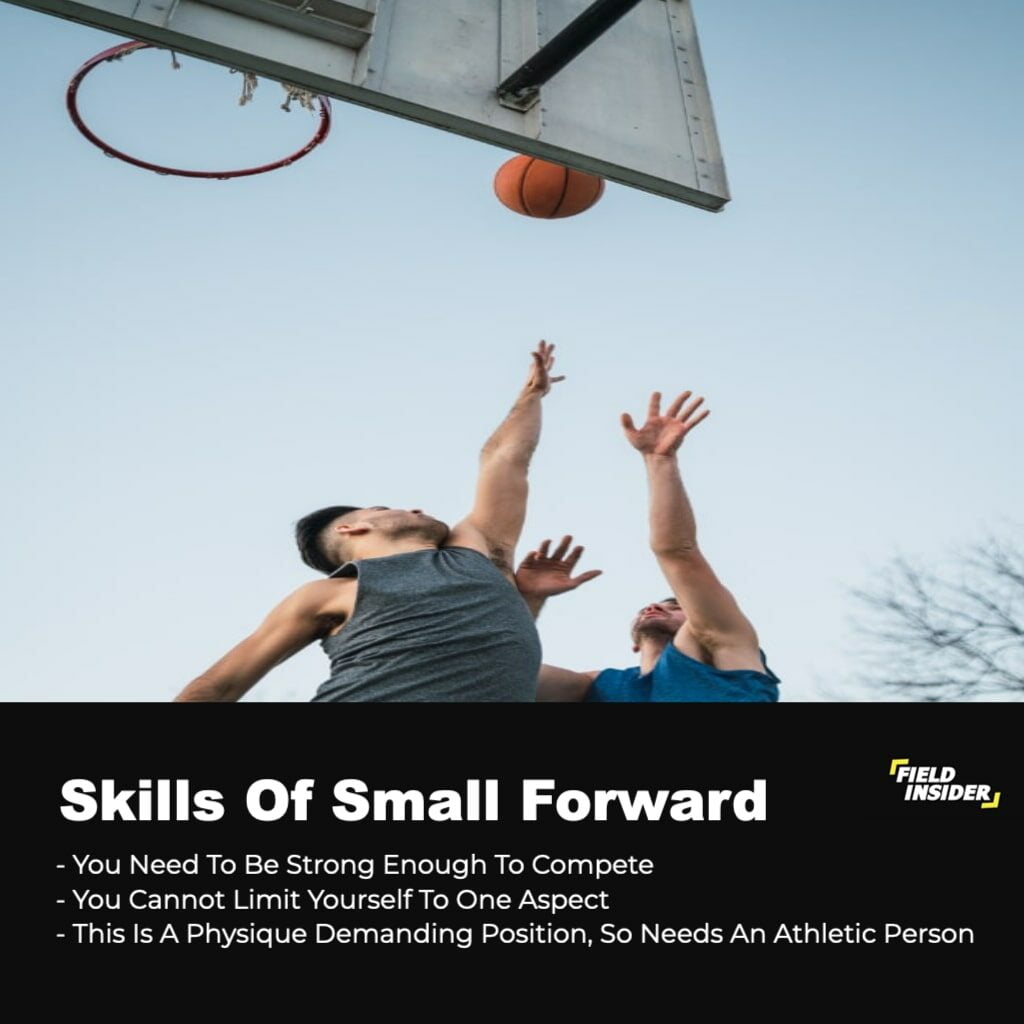
How Do I Train To Be a Small Forward? Small Forward Drills
There are many different small forward drills you can do to help improve your skillset and basketball knowledge. Most of these drills will focus on core areas such as strength, ball handling, shooting from outside the three-point line, defending players across the court/paint, etc.
This is because a successful small forward needs to be able to do all of those things to compete with other players at this position. Otherwise, they’ll be ineffective during play which means their team loses!
Strength
there are a few ways that you can make sure you have enough physical strength for playing small forward:
- Working Out
You should go into the gym several times per week. To lift weights or run around an indoor track until your muscles feel tired.
- Strength Training
To improve your strength you can lift weights which will help increase muscle size and density; this way you’ll be able to play against players who are bigger than you. Without getting pushed around or thrown over easily!
- Sprinting/Running
Running is an excellent exercise for tiny forwards since it promotes bone health, burns body fat, and increases cardiovascular fitness. As a result, you won’t get exhausted as easily during games.
Basketball players should never substitute sprinting for running. Instead, they should be used to flush out any lactic acid that has accumulated in the muscles following a strenuous game or workout. Otherwise, there’s no use doing them!
Strength Training Tips: The key to up strong muscles is consistency; if you want to bulk up then you need to build muscle by going into the gym several times per week and working out your muscles. Otherwise it won’t work!
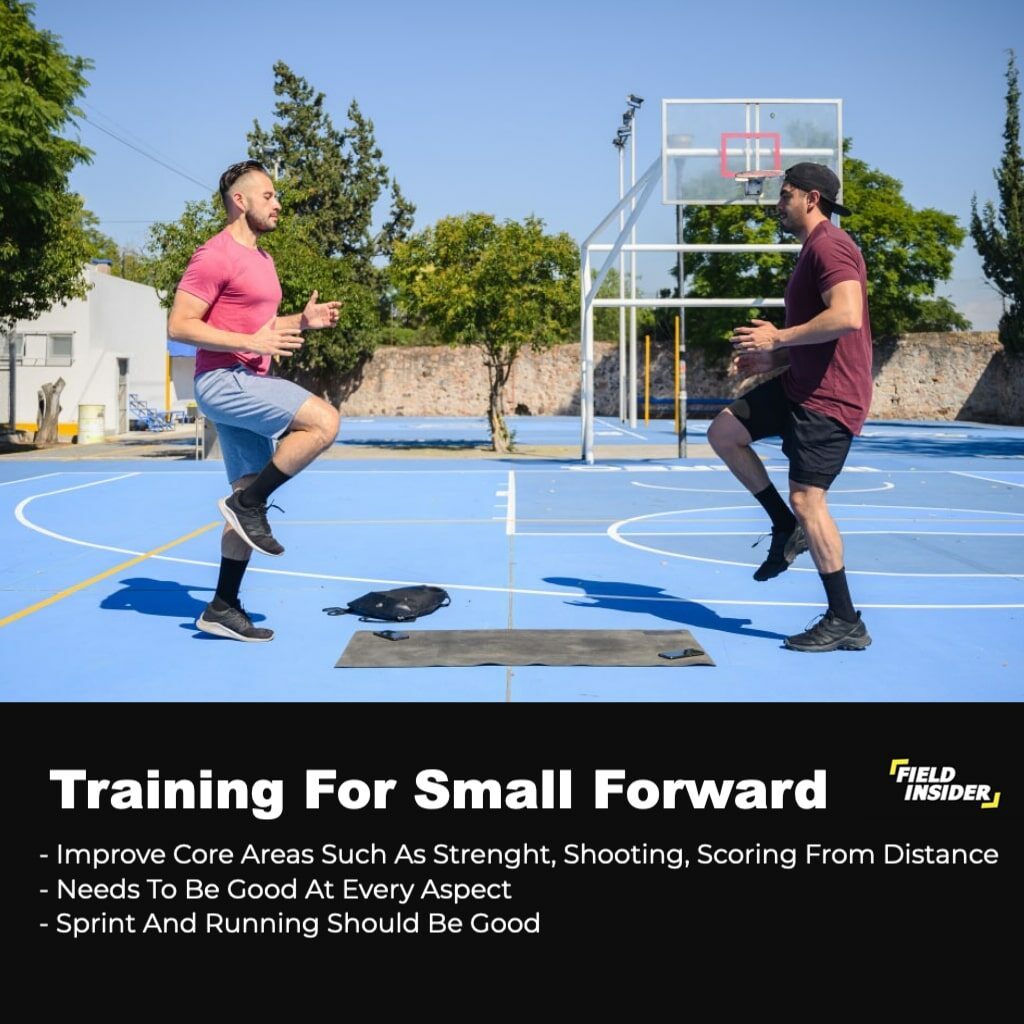
Ball Handling
There are a few different drills that can help with ball handling:
- Crossover Drill
This is one of the most popular basketball dribbling drills because it forces players to move from side to side quickly.
To execute this exercise, choose a space wide enough for two lanes (one on each side) and stand there. Begin by bringing your top hand down near one knee and your bottom hand up past the opposite shoulder. Switch sides as quickly as you can to ensure that you are crossing over each time.
Crossovers should be performed at full speed so that you can work on your agility and quickness.
- Scissors Drill
In order to complete this exercise, start by standing in an open space with enough room for two lanes. This is another well-liked ball-handling drill since it helps players move their bodies more quickly than they would if they were simply using one hand to dribble (a lane on either side).
Then use both hands to throw the basketball into each other as fast as possible while moving up/down the court – remember that if someone falls over then they’re out!
As soon as a player drops or touches the floor at any time during the game everyone else must stop immediately making it easier for those who are still able to play without tiring themselves out too quickly.
Shooting From Outside The Three-Point Line
There are a few ways that you can train your shooting:
- Free Throws and Layups
A great drill for small forwards is to line up at the free-throw line then shoot 100 jump shots from inside the paint. Every time you miss, start over until you successfully make all of them!
In order to play during actual games, everything will automatically happen effortlessly without needing to think or hesitate, thanks to the development of muscle memory.
Consider trying something like standing outside the three-point line with each side earning two points; target five balls in a row before taking a little break (30 seconds) and restarting the process another time if there isn’t enough time for this type of workout session.
- Speed Shooting Drill
This is a particularly effective workout for players to improve their shooting speed since it compels you to shoot as quickly as you can. To complete this exercise, stand at the foul line and attempt 100 shots from within the paint (again).
Every time you miss start over but instead of shooting with regular form try speeding everything up; use one hand if necessary and don’t worry about making them – just focus on getting your arms used to release the ball faster than normal through muscle memory training!
The Best Small Forwards in Basketball History!
LeBron James
Starting off the list, we have the best small forward of all time – LeBron James. During his career, he has been named as an All-Star 14 times and won four Most Valuable Player awards! LeBron has also been a member of four teams that have won the NBA Playoffs, and he’s got two Olympic Gold Medals under his belt as well!
At the time of writing LeBron is still currently playing for the Los Angeles Lakers and at the top of his game; there’s no doubt that LeBron James will be remembered as one of basketball’s greatest small forwards ever!
Larry Bird
Larry Bird is another small forward we cannot forget about; over his career, Larry was named to 12 All-Star games and three times on the All-NBA first team. He finished second in MVP voting five different seasons which shows how dominating he was during each game.
Lastly, you should know that this Celtic legend holds the record for most points scored during an overtime period (14). That alone shows what kind of talent Larry had towards scoring baskets at will – making him one of our best small forwards ever!
Kevin Durant
His career averages are 27.2 points, 7.1 rebounds, and 4.3 assists per game. Widely regarded as one of the greatest players of all time, Durant has earned All-NBA honors ten times (2009–2014, 2016–2019, 2022) and was voted Rookie of the Year in his debut season. He has also won an MVP Award and finished second in the voting three times, a trend that he has expressed frustration over.
The 34-year-old Durant is still playing at an elite level, averaging nearly 30 points per game this season. He initially asked for a trade last summer and the Suns were interested before Durant patched things up with Brooklyn. They finally got him, less than 24 hours before the trade deadline.
Scottie Pippen
Scottie Pippen is the last small forward we’d like to mention and he’s one of Michael Jordan’s best friends. During his career, Scottie was able to win seven NBA titles as well as being named on six All-Defensive first teams and six times for All-NBA second-team honors.
He also made it into eight straight All-Star games so clearly this man deserved a spot on our list!
Conclusion
We hope you have enjoyed this blog post on small forwards in basketball. If you are interested, we will continue to provide posts with more information on the topic of basketball.
Our pick of small forwards in basketball have all won championships, MVPs, and made All-Star teams so they deserve to be known as some of the best! Do you have any other mentions? Let us know in the comments below.


